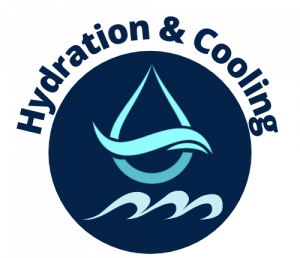For seniors, proper hydration becomes increasingly important yet challenging. Discover age-specific water intake recommendations and practical tips to help elderly individuals maintain optimal hydration levels for better health and wellbeing.
_______________________________
How Much Water Should an Elderly Person Drink a Day: Age-Specific Guidelines
Why Hydration Changes as We Age
As we get older, our bodies undergo significant changes that affect how we process and retain water. For seniors, staying properly hydrated isn’t just about comfort—it’s essential for health and wellbeing. Many older adults experience a diminished sense of thirst, making them less likely to drink water even when their bodies need it. At the same time, age-related changes in kidney function can affect fluid balance, while certain medications may increase the risk of dehydration.
Dehydration in seniors can lead to serious complications including urinary tract infections, kidney problems, and increased fall risk. That’s why having clear, age-specific guidelines for daily water intake is so important for caregivers and seniors themselves.
Recommended Daily Water Intake for Seniors
While the popular “eight 8-ounce glasses per day” rule works as a general guideline, seniors have unique hydration needs that often require a more personalized approach:
Ages 65-75
Most health experts recommend that seniors in this age range consume about 1.7 liters (57 ounces) of fluids daily for men and 1.5 liters (50 ounces) for women. This translates to roughly 7-8 cups of water daily, though individual needs may vary based on activity level, health conditions, and climate.
Ages 75-85
As the body continues to age, kidney function typically decreases further, but proper hydration remains crucial. Seniors in this age group should aim for approximately 1.5 liters (50 ounces) for men and 1.3 liters (44 ounces) for women. This means about 6-7 cups of water throughout the day.
Ages 85+
For those over 85, maintaining adequate hydration can become more challenging. The recommended intake is around 1.3 liters (44 ounces) for men and 1.2 liters (40 ounces) for women—roughly 5-6 cups daily. However, this group especially benefits from having fluid intake spread throughout the day rather than consumed all at once.
Factors That Affect Seniors’ Hydration Needs
These guidelines serve as starting points, but several factors can increase an elderly person’s water requirements:
Health Conditions
Seniors with certain health conditions may need to adjust their fluid intake. Those with congestive heart failure might need to limit fluids, while people with kidney stones or urinary tract infections often benefit from increased water consumption. Always consult with a healthcare provider about condition-specific recommendations.
Medication Use
Many medications commonly prescribed to seniors can affect hydration status. Diuretics, laxatives, and some blood pressure medications increase fluid loss, potentially requiring higher water intake to compensate. Other medications may cause dry mouth, making regular sips of water throughout the day even more important.
Climate and Activity Level
Hot weather and physical activity increase fluid needs at any age, but seniors need to be especially careful. During summer months or after exercise, elderly individuals should increase their water intake by at least 1-2 extra cups daily to replace lost fluids.
Practical Tips for Maintaining Hydration in Seniors
Knowing how much water seniors should drink is only half the battle—getting them to actually consume enough fluids often presents the bigger challenge.
Create a Schedule
Since many elderly people don’t feel thirsty even when dehydrated, establishing a regular drinking schedule can help. Try offering water at set times throughout the day—with meals, when taking medications, and between regular activities.
Make Hydration Appealing
Plain water isn’t the only option for staying hydrated. While it’s the healthiest choice, seniors who struggle to drink enough water might enjoy:
– Water infused with fresh fruit or herbs
– Caffeine-free herbal teas (hot or cold)
– Clear broths and soups
– Fruits and vegetables with high water content like watermelon, cucumber, and oranges
Use Visual Reminders
A dedicated water bottle marked with time intervals can serve as a visual reminder to drink throughout the day. Filling a pitcher each morning with the day’s water goal can also help track progress.
Signs of Dehydration in Elderly Adults
Even with careful attention to water intake, it’s important to watch for signs that an elderly person might not be getting enough fluids:
– Increased confusion or disorientation
– Dark-colored urine or reduced urination
– Dry mouth, lips, and tongue
– Dizziness or lightheadedness
– Fatigue or unusual sleepiness
– Sunken eyes or reduced skin elasticity
If you notice these symptoms, gradually increase fluid intake and consult a healthcare provider if symptoms persist or worsen.
Keep Seniors Healthy with Proper Hydration Solutions
Maintaining adequate hydration is one of the simplest yet most effective ways to support an elderly person’s health. At Hydration & Cooling, we understand the unique challenges seniors face in staying properly hydrated, especially during hot weather or outdoor activities.
Our portable hydration stations and cooling systems provide convenient access to water and temperature control for seniors at community centers, care facilities, and outdoor events. When life gets hot, we help seniors stay cool and properly hydrated.
Contact us today at 828-820-8600 to learn more about our specialized hydration solutions for senior communities and care facilities. Your loved ones deserve the best in hydration care—we’re here to help you provide it.
